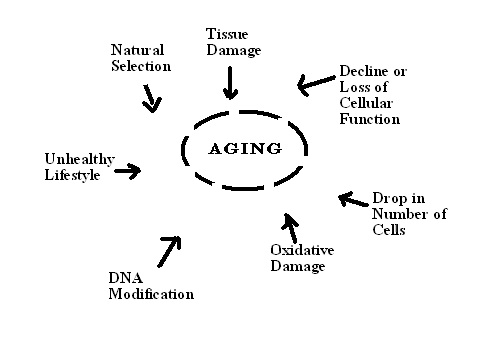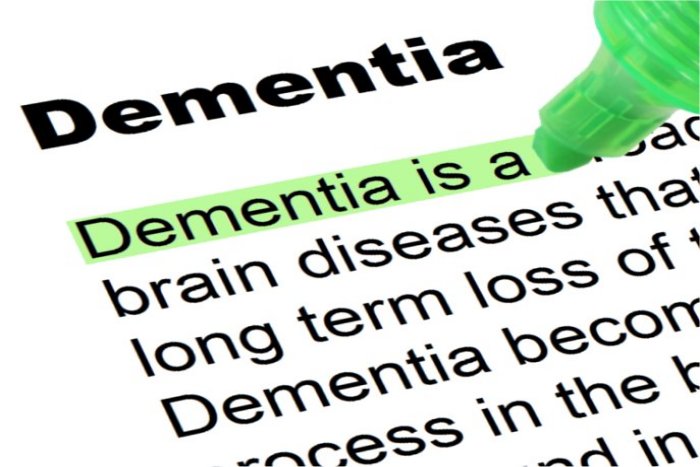Difference Between Normal Aging and Dementia
What is Normal Aging and Dementia?
As we age, our cognitive tendencies and abilities gradually decline. However, mild changes in cognition are thought to be a normal part of the aging process. Research reports that age-related modification in brain structures like reduced hippocampal, frontal and temporal lobe volumes indicate normal signs of aging.
But, in case of dementia, declines in cognition are more severe and usually include difficulties navigating, severe memory loss, loss of thinking abilities, rapid forgetting or, solving simple problems and, behaving outside of social rules.
Normal Aging
With age, the mental processes – our cognition– naturally declines. The most prominent change that happens in the process of normal aging is cognitive slowing. With regards to verbal skills, vocabulary and language, there is no change, but the potential to figure out a particular word can decline. Memories of previous years remain quite stable, but making new memories can hard, and memory that is working (like trying to recall a mobile number to dial it) is particularly impacted. The potential to focus on a single activity or task is not changed but there is increased discomfort with switching attention or multitasking.
Dementia
It is an umbrella term used to describe the reduced brain activity and function that results in the loss of memory and declined language skills, loss of daily living skills and impaired reasoning. The most common cause of dementia is a disease names as Alzheimer’s Disease. Treatments is helpful in this case, but this disease can not be cured. It can last for years or be lifelong.
Difference between Normal Aging and Dementia
Description
Normal aging
When there are no underlying medical conditions that result in memory loss, it is called as “age-related memory impairment,” which is basically a part of the normal aging process. Patient is more concerned about alleged forgetfulness and declining memory than the close acquaintances and family members. There is occasional difficulty and trouble in word finding. The aged person does not normally get lost in a familiar lane or territory and even if he does, it is momentarily. He eventually remembers it.
Dementia
Dementia is a group of social symptoms that describe several symptoms of cognitive decline, like memory loss and forgetfulness. It is a symptom of some brain disorders and other memory related diseases that involves loss of thinking, communication and impairment in memory. The patient suffering from this disease is not even aware of his reduced memory loss. Patient is unable to remember even the recent memory of events and he also may need dependency from others with the simple work.
Language
Normal aging
Having a slight trouble finding the right word at times
Dementia
Frequent issues finding the right word or frequently referring to certain things or objects as ‘that thing’
Mood and Behaviour
Normal aging
- People feel a bit anxious and low due to social and family obligations
Dementia
- People become withdrawn and loose interest in socializing, work or hobbies
Signs and Symptoms
Normal aging
- Having memory impairment, but responding to multiple-choice options and clues or
- Slight delays in word finding
- No changes in daily activities
- Maintaining visuospatial function
- Maintaining social skills
Dementia
- Memory loss which is not related to psychiatric disorder, like schizophrenia.
- Cognitive and behavioural impairment
- Reduction in functioning ability
- Reduced capacity to handle and reason complex tasks
- Decision-making that is very poor
- Visuospatial abilities are impaired
- Alteration of behaviour, personality and comportment
Irritation level
Normal aging
You become irritated if the normal routine is disrupted
Dementia
You become extremely agitated by any alteration or change in routine, especially when this agitation and extreme irritation is atypical of one’s own personality.
Poor Judgement
Normal aging
Make debatable or questionable decisions at times
Dementia
No surety or clue of dressing properly or giving excess money to solicitors
Summary
The points of difference between Normal aging and Dementia have been summarized as below:
- Difference Between Global Warming and Greenhouse Effect - May 18, 2024
- Difference Between Vaccination and Immunization - March 3, 2024
- Difference Between Selective Mutism and Autism - February 25, 2024
Search DifferenceBetween.net :
Leave a Response
References :
[0]Image credit: http://www.thebluediamondgallery.com/highlighted/images/dementia.jpg
[1]Image credit: https://commons.wikimedia.org/wiki/File:Aging_Factors.jpg
[2]Denver, P., & McClean, P. L. (2018). Distinguishing normal brain aging from the development of Alzheimer's disease: inflammation, insulin signalling and cognition. Neural regeneration research, 13(10), 1719.
[3]Irwin, K., Sexton, C., Daniel, T., Lawlor, B., & Naci, L. (2018). Healthy Aging and Dementia: Two Roads Diverging in Midlife? Frontiers in aging neuroscience, 10.



